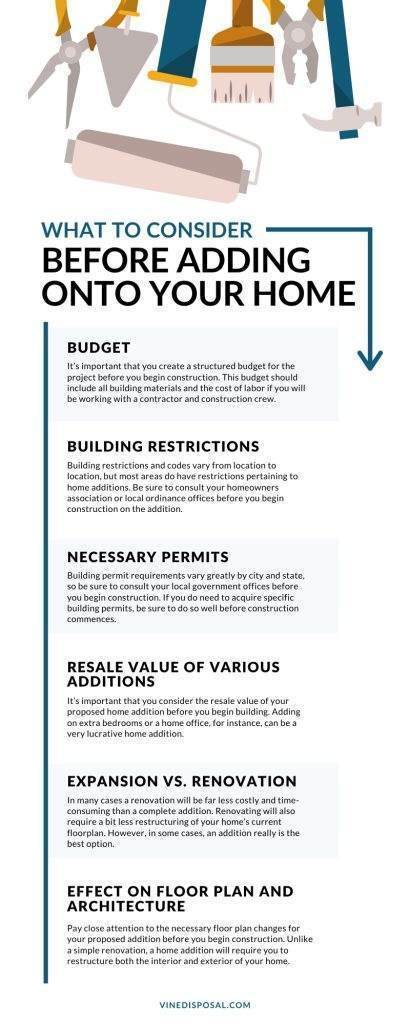So you’re thinking about tackling a renovation project? Before you jump in headfirst, there are a few things you’ll want to consider. In this article, we’ll discuss the key factors you need to keep in mind before embarking on your home renovation adventure. From budgeting and planning to choosing the right contractors and materials, we’ve got you covered. By addressing these considerations upfront, you’ll be better equipped to make informed decisions and ensure a successful renovation journey. Let’s get started!

This image is property of www.mcmhome.com.
Budget
Assessing your financial situation
Before diving into a renovation project, it is crucial to assess your financial situation. Take a careful look at your savings, income, and overall expenses to determine how much you can realistically allocate towards your renovation budget. Consider factors such as your monthly mortgage or rent payments, monthly bills, and any other financial obligations or commitments you may have. Understanding your financial situation will help you set a budget that makes sense for you and ensures you don’t overextend yourself financially.
Determining your renovation budget
Once you have assessed your financial situation, it’s time to determine your renovation budget. Consider the scope of your renovation plans and the areas you wish to improve. Think about the materials, labor, and any additional costs associated with the project. It’s important to set a realistic budget that aligns with your financial capabilities while also balancing your renovation goals. Remember to factor in unforeseen expenses that may arise during the renovation process, as it’s common for unexpected challenges to come up.
Scope of Renovation
Identifying the areas to renovate
Before starting your renovation project, identify the specific areas of your home that you want to renovate. Assess each room and prioritize which ones require the most attention. Consider your lifestyle and how you use each space daily. This will help you focus your efforts and ensure you allocate your budget and resources accordingly. Whether it’s updating your kitchen, adding a new bathroom, or renovating your living room, being clear about your goals will guide your renovation plans.
Deciding on the extent of renovation
Once you have identified the areas to renovate, it’s important to determine the extent of the renovation. This could range from a simple cosmetic upgrade to a complete structural overhaul. Consider the condition of the existing features, the age of the home, and your desired outcome. Understand the impact and cost associated with each level of renovation to make an informed decision. While a full-scale renovation may provide a dramatic transformation, it’s essential to balance your expectations with your budget and timeline.
Legal Considerations
Checking local regulations and permits
Before you proceed with any renovation project, it’s crucial to check local regulations and obtain the necessary permits. Every jurisdiction has different rules and requirements, so it’s important to understand the legal obligations associated with your renovation plans. Contact your local building department or consult with a professional to ensure you comply with all regulations. Failure to do so may result in costly fines or even the need to reverse or redo your renovations.
Understanding building codes and restrictions
In addition to obtaining permits, it’s essential to familiarize yourself with the building codes and restrictions in your area. Building codes are in place to ensure the safety, health, and overall well-being of the occupants of a property. They cover various aspects of construction, including structural integrity, electrical, plumbing, and fire safety. Understanding these codes will help you plan your renovation project accordingly and ensure compliance with local regulations.
Timeline
Setting a realistic timeline
When embarking on a renovation project, it’s important to set a realistic timeline. Consider the scope of your project, the availability of contractors, and any potential delays that may arise. Factor in potential setbacks such as unexpected issues or weather conditions that may impact the progress of the renovation. While it’s natural to be eager to complete the project quickly, rushing through the renovation process can compromise the quality of the work. Take the time to plan and set a timeline that allows for thorough planning, execution, and potential contingencies.
Considering potential delays
Renovations can often encounter delays due to unforeseen circumstances. Anything from bad weather to supply chain disruptions can unexpectedly impact your project’s timeline. Understanding this possibility and accounting for potential delays in your overall plan is essential. Prepare for a buffer period in your timeline to accommodate any setbacks that may arise. This will help you manage your expectations and minimize stress during the renovation process.

This image is property of vinedisposal.com.
Contractors
Finding reputable contractors
Finding reputable contractors is crucial to the success of your renovation project. Seek recommendations from friends, family, or neighbors who have recently completed renovations. Look for contractors with a solid reputation, positive customer reviews, and appropriate licenses and insurance. Take the time to interview potential contractors to ensure they understand your vision, budget, and timeline. Don’t be afraid to ask for references or view previous projects they have completed. Hiring experienced and reliable professionals can make a significant difference in the outcome of your renovation.
Obtaining multiple quotes
To ensure you are getting a fair and competitive price for your renovation project, it’s recommended to obtain multiple quotes from different contractors. This will allow you to compare prices, the scope of work, and timelines. Keep in mind that the lowest quote may not always be the best option. Consider the contractor’s reputation, experience, and the quality of their previous work. Look for transparency and clear communication in the quoting process to avoid any surprises or hidden costs later on. Making an informed decision based on multiple quotes will give you peace of mind and confidence in your contractor selection.
Design and Style
Defining your renovation goals
When planning your renovation, it’s important to define your goals regarding the overall design and style of your space. Consider your personal preferences and the functionality you want to achieve. Are you going for a modern aesthetic or a more traditional look? Do you want to create an open-concept layout or maintain the existing room divisions? Establishing clear renovation goals will help guide your decision-making process and ensure a cohesive design throughout your home.
Choosing a cohesive design theme
Once you have defined your renovation goals, it’s time to choose a cohesive design theme that reflects your personal style. Consider factors such as color schemes, materials, and textures that complement each other and create a harmonious overall look. Research different design styles, browse magazines or online platforms, and save images that resonate with your vision. Creating a mood board or working with a professional designer can help you visualize your ideas and ensure a cohesive design theme throughout your renovated space.

This image is property of images.squarespace-cdn.com.
Functionality
Assessing the needs of your living space
When planning your renovation project, it’s essential to assess the needs of your living space. Consider how you currently use each room and identify any pain points or areas that require improvement. Are you lacking storage space? Does your kitchen need more countertop area? Assessing these needs will help you prioritize the functionality aspects of your renovation and ensure that your updated space caters to your lifestyle.
Considering future functionalities
While it’s important to address your current needs, it’s also advisable to consider future functionalities. Think about any potential changes in your family dynamic or lifestyle that may influence your space requirements. Are you planning to have children or expecting elderly relatives to move in? Do you anticipate the need for a home office or additional living space down the line? Taking these future functionalities into account can save you from costly reworks in the future and help create a more versatile and accommodating living environment.
Logistics
Planning for temporary accommodations
Depending on the scope of your renovation project, you may need to plan for temporary accommodations. Assess whether it will be feasible to remain in your home during the renovation or if you will need to relocate temporarily. Consider the duration of the project and the level of disruption it may cause to your daily routine. If staying at home is not practical, explore options such as staying with family or friends, renting a short-term apartment, or finding a hotel that offers long-term rates. Planning for temporary accommodations in advance will help minimize stress and ensure a more comfortable experience during the renovation process.
Arranging for storage
During the renovation process, you may need to temporarily store your belongings to create space for the construction work. Depending on the scope of your project, renting a storage unit or utilizing a portable storage container may be necessary. Assess your storage needs and consider the size and quantity of items that will require storage. Properly packing and labeling your belongings will make the retrieval process easier once the renovation is complete. Planning for storage ahead of time will help keep your belongings safe and organized during the renovation process.

This image is property of www.janelockhart.com.
Emotional Impact
Preparing for the disruption
Renovation projects can be disruptive and may impact your daily routine and living conditions. Noise, dust, and restricted access to certain areas of your home are common during the construction phase. To minimize the emotional impact, prepare yourself and your family for the disruption. Set realistic expectations and communicate with your contractor to understand the project timeline and how it may affect your daily life. Creating temporary living spaces, establishing a routine, and maintaining open lines of communication can help ease the emotional strain during the renovation process.
Managing the stress and emotions
Renovations can be stressful, but there are strategies to help manage the emotional impact. Find healthy ways to cope with stress, such as practicing self-care, yoga, or meditation. Maintain open communication with your contractor and address any concerns promptly. Keeping an organized schedule, setting aside time for relaxation, and seeking support from friends and family can also help manage the emotional impact of a renovation project. Remember to focus on the end result, envisioning the improved space and the positive changes it will bring.
Environmental Impact
Considering sustainable materials
When planning your renovation, it’s important to consider the environmental impact of your choices. Opting for sustainable materials can help reduce waste, conserve energy, and minimize your carbon footprint. Consider using eco-friendly products, such as recycled or reclaimed materials, low VOC paints, and energy-efficient appliances. Research and choose suppliers who prioritize sustainable practices in their manufacturing processes. By making environmentally conscious choices, you can contribute to creating a healthier and greener living environment.
Minimizing waste and energy consumption
In addition to using sustainable materials, it’s essential to minimize waste and energy consumption during your renovation. Properly dispose of construction debris and recycle materials whenever possible. Explore energy-saving options such as LED lighting, smart thermostats, and energy-efficient windows and insulation. Engage with your contractor to ensure they follow responsible waste management practices. By actively participating in waste reduction and energy conservation efforts, you can make your renovation project more environmentally friendly.
In conclusion, before embarking on a renovation project, it is important to carefully assess your financial situation, determine your budget, and identify the specific areas and extent of the renovation. Understand the legal considerations, such as local regulations and building codes, and ensure you obtain the necessary permits. Set a realistic timeline, considering potential delays, and carefully select reputable contractors while obtaining multiple quotes. Clarify your renovation goals and choose a cohesive design theme, keeping in mind the functionality of your living space and potential future needs. Plan for temporary accommodations, arrange for storage if necessary, and prepare for the emotional impact of the renovation process. Lastly, consider the environmental impact by choosing sustainable materials and minimizing waste and energy consumption. By following these considerations, you can navigate the renovation process more smoothly and achieve the desired transformation in your home.

This image is property of coppertreehomes.com.
